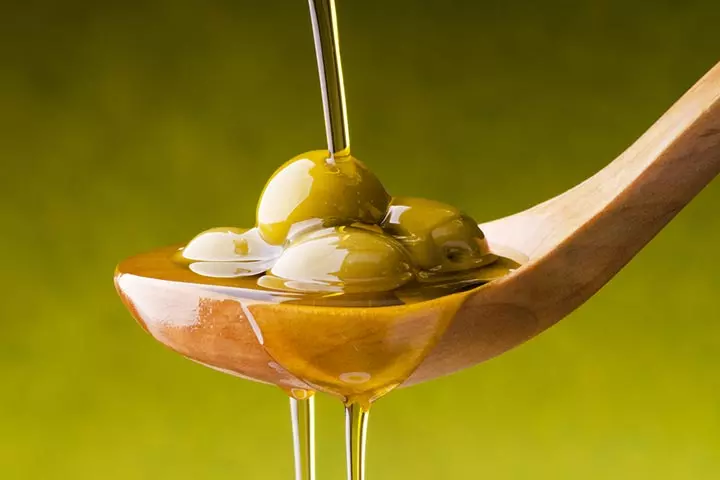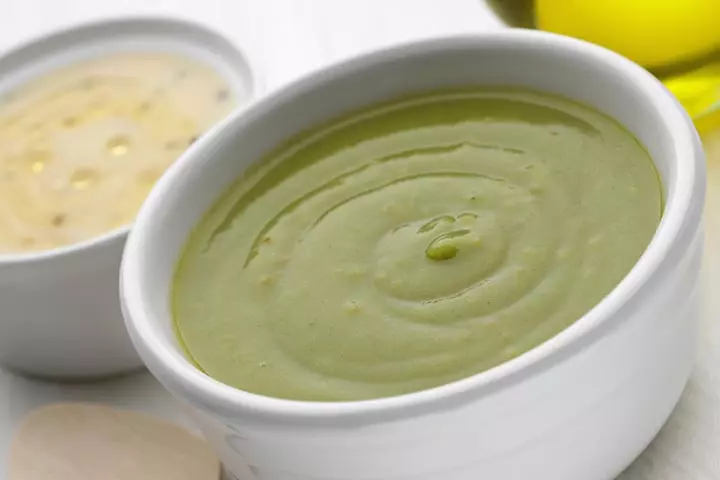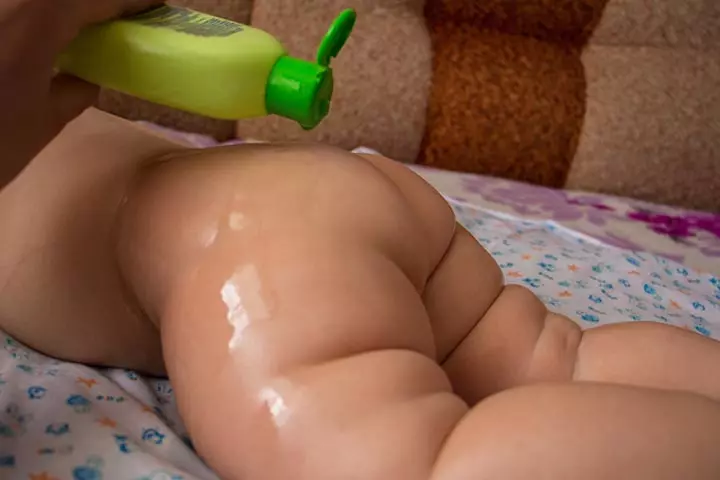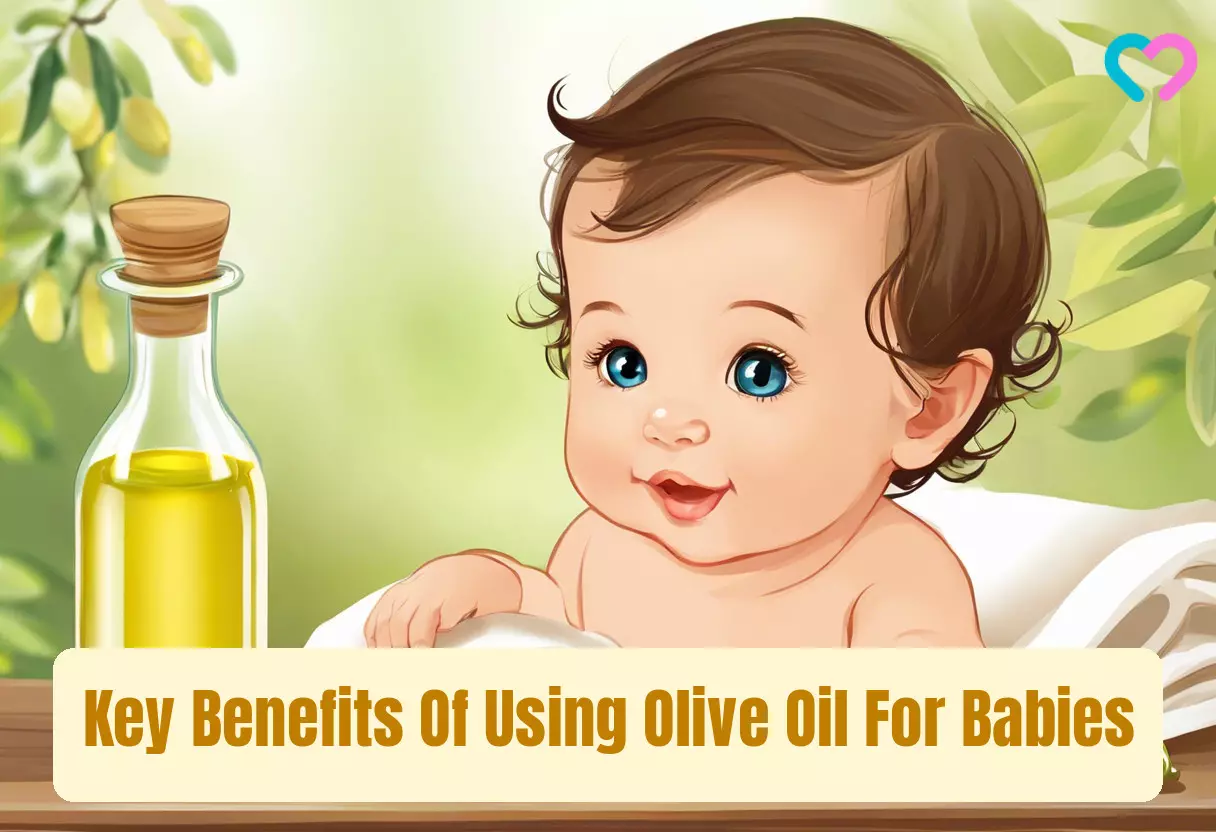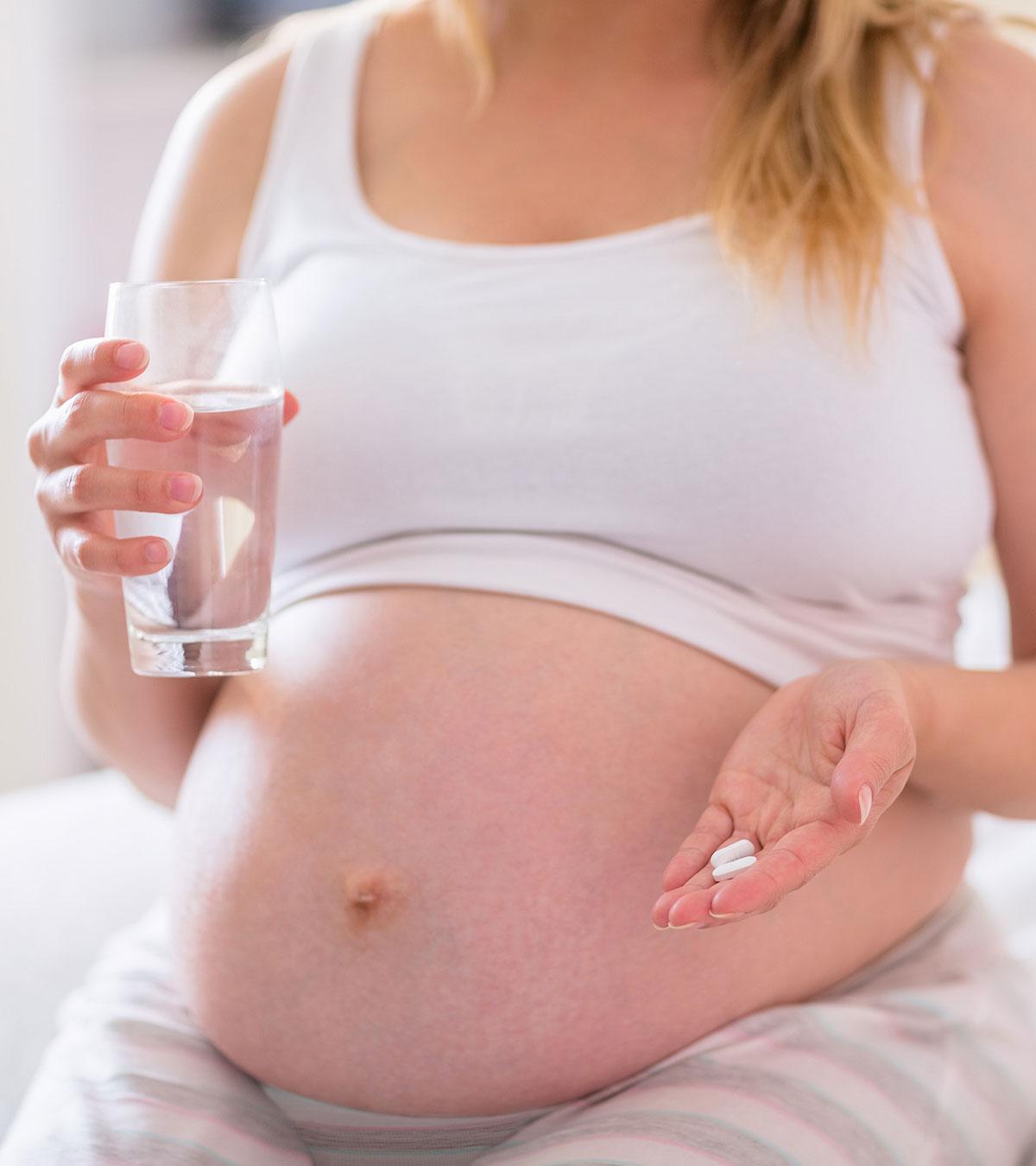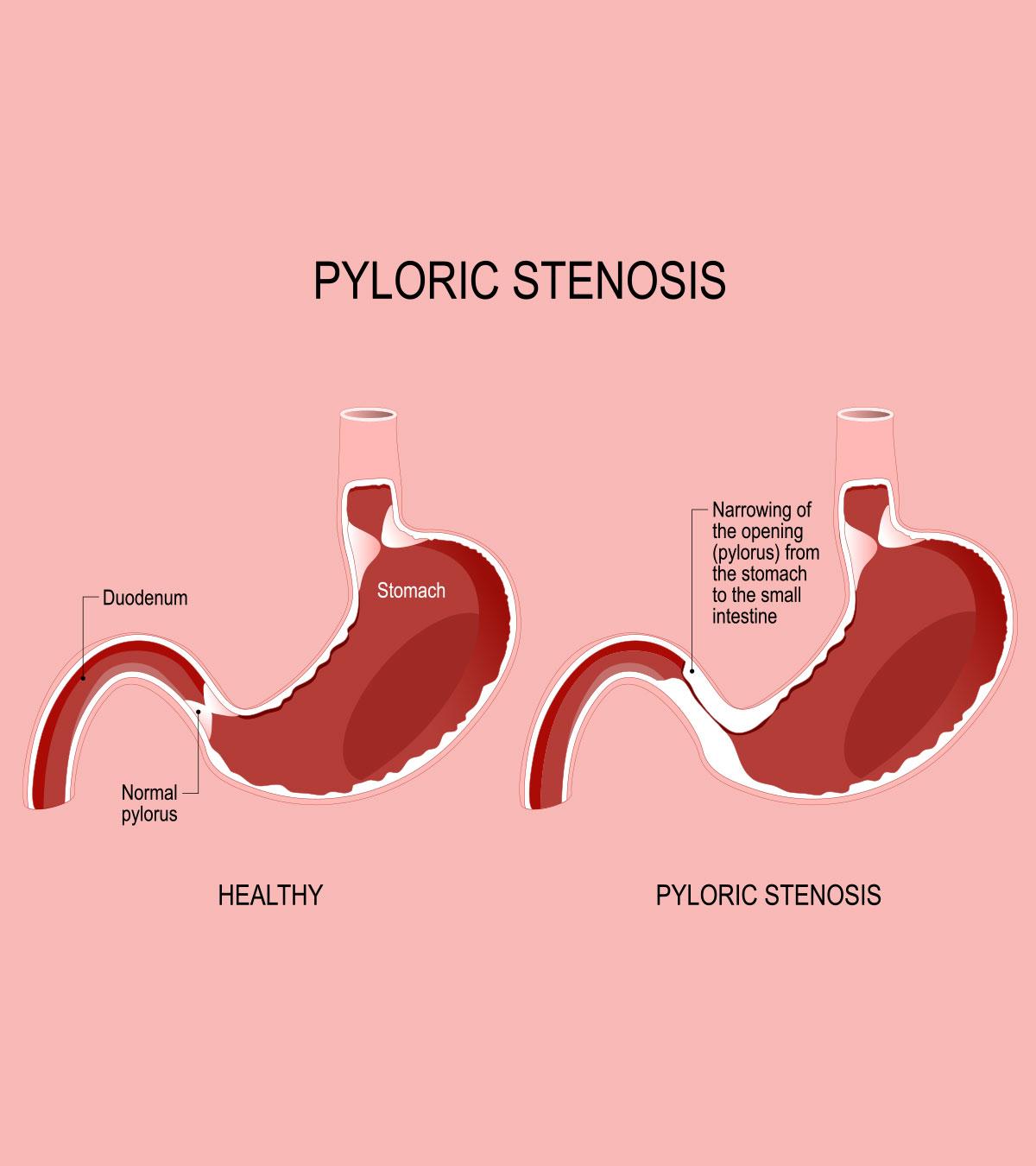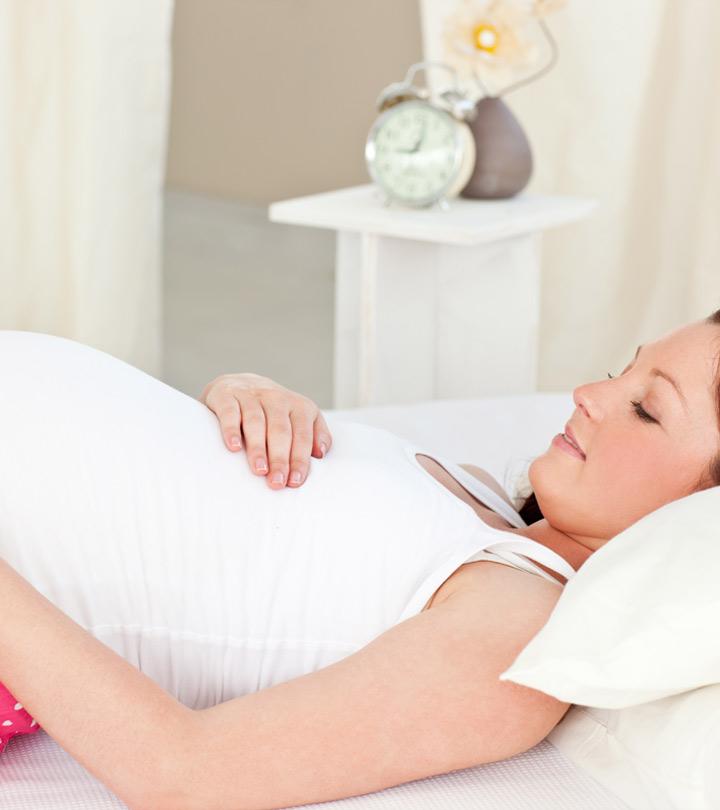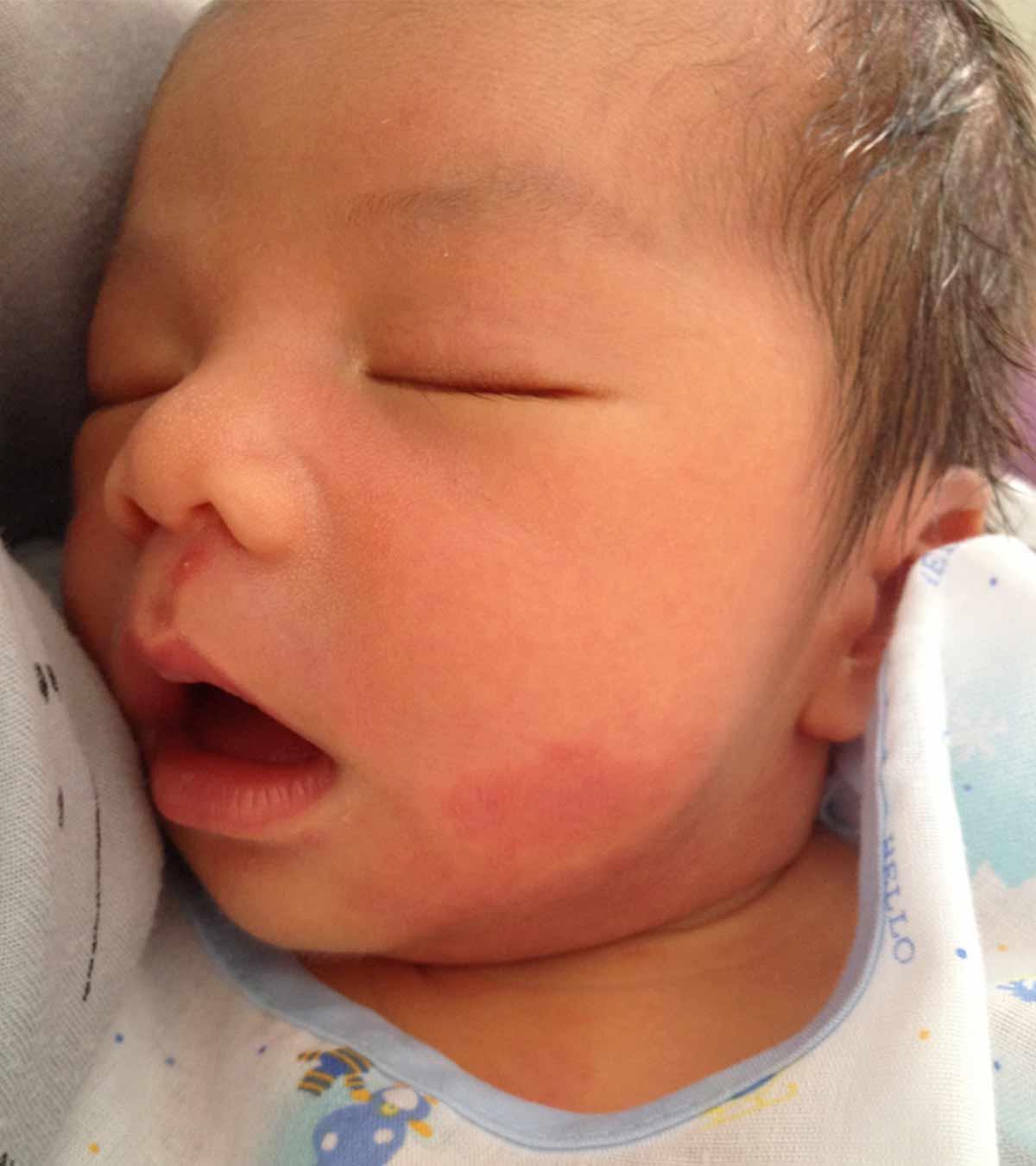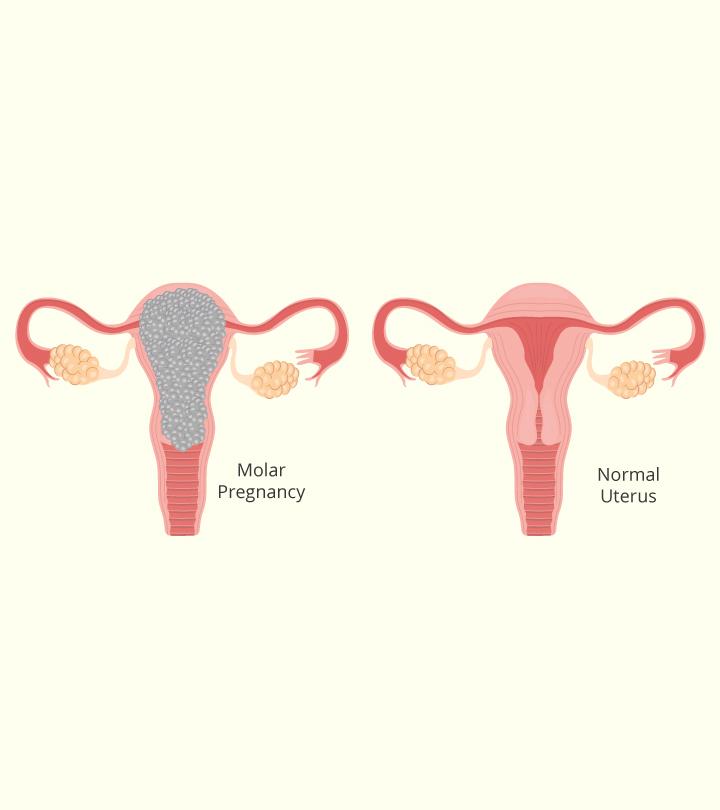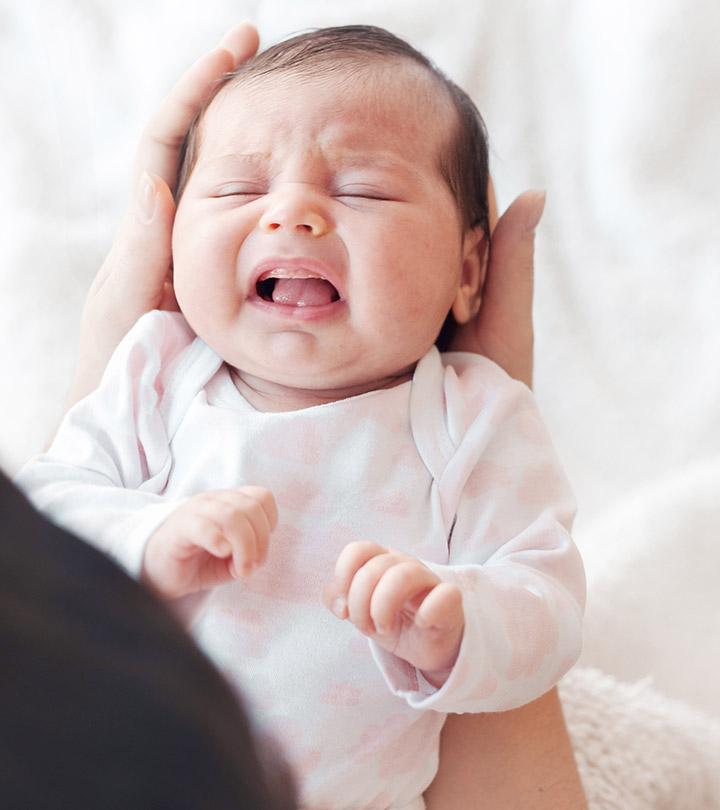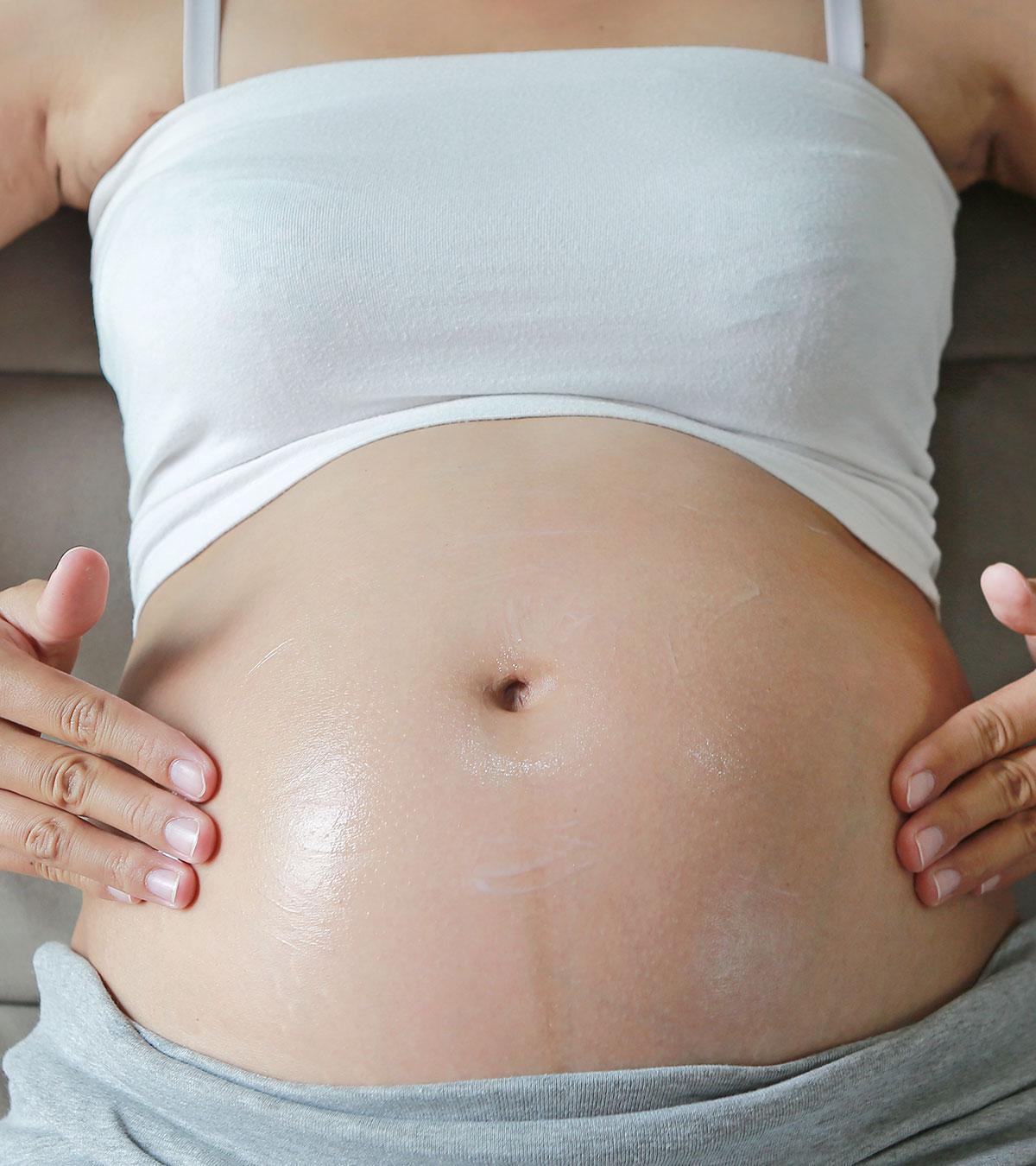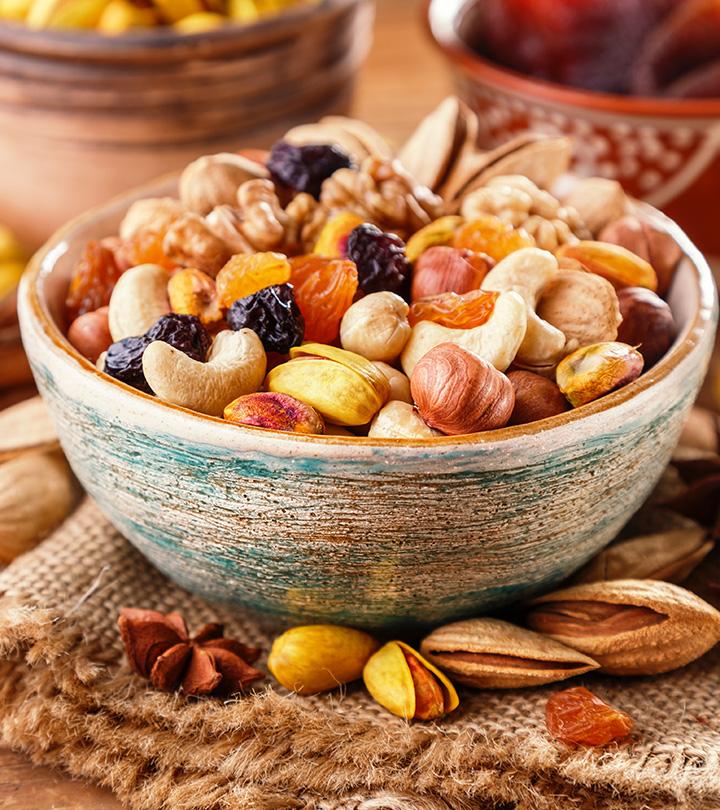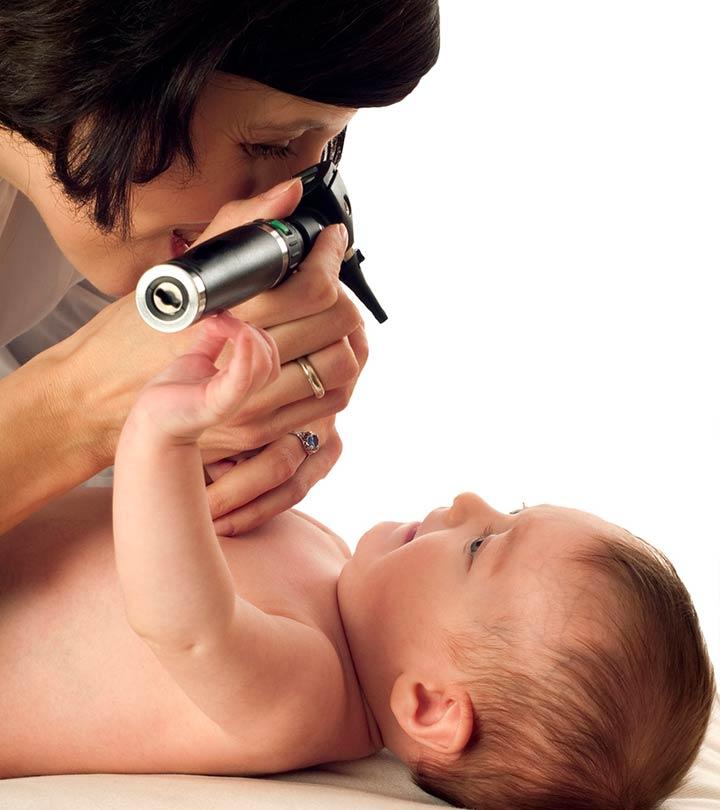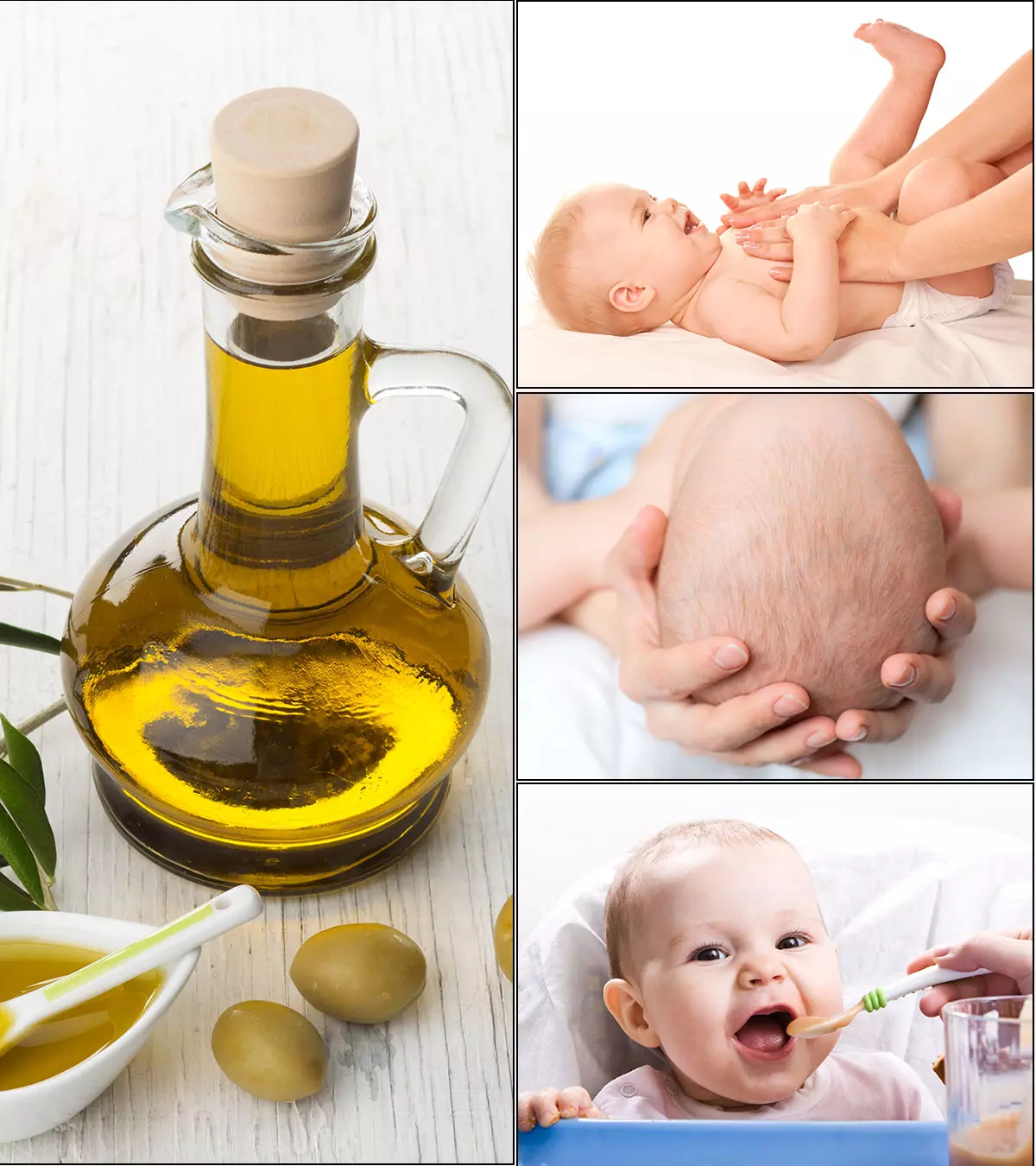
Image: Shutterstock
You may have used olive oil for babies in their massage routine. An experimental trial conducted by the University of Manchester revealed that massaging with sunflower or olive oils retains water and helps keep the skin hydrated (1). In addition, olive oil has been in use for its health and hair benefits for a long time now. So in this post, we will tell you about all the benefits that olive oil can offer to babies.
Key Pointers
- Olive oil promotes muscle and bone health due to its nutrition-rich content.
- Olive oil has regenerative properties that help moisturize skin, prevent diaper rashes, improve sleep, and calm babies when used for massage.
- Adding olive oil to a baby’s food can help relieve constipation, improve immunity, reduce cough, prevent cradle cap dandruff, and increase the health of the heart and pancreas.
- However, excessive consumption of olive oil by a toddler can cause diarrhea, inflammation, and unhealthy weight gain.
What Is Olive Oil?
Image: Shutterstock
Olive oil is a fat obtained by processing whole olives, which are the fruits of a traditional tree crop of the Mediterranean Basin, named olea europaea.
- Oil produced by mechanical means and without any chemical treatment is called virgin oil.
- Extra virgin olive oil is pure and chemical-free oil that does not undergo any temperature treatments. It is extracted from fruits of olive trees, which are free from diseases, harvested at the right time, and processed immediately.
 Did you know?
Did you know?Constituents And Nutritive Value Of Olive Oil
According to USFDA, one tablespoon of olive oil contains:
- Calories: 119
- Fat: 13.50gm
- Carbohydrates: 0
- Saturated fats: 2gm
- Fibers: 0
- Protein: 0
- Vitamin E: 1.8mg
- Vitamin K: 8.1 microgram
Olive Oil is composed of mixed triglyceride esters of oleic acid, palmitic acid, and other fatty acids, besides traces of sterols and squalene. Phenolics including tyrosol, oleocanthal, hydroxytyrosol, and oleuropein are a few other components.
| Fatty acid | Percentage |
|---|---|
| Oleic acid | 55 to 83% |
| Linoleic acid | 3.5 to 21% |
| Palmitic acid | 7.5 to 20% |
| Stearic acid | 0.5 to 5% |
| α-Linolenic acid | 0 to 1.5% |
7 Benefits Of Olive Oil For Babies
1. Olive oil for baby massage
Image: Shutterstock
Baby massage time is quality time spent to strengthen parent-baby bonding. Incorporating regular baby massage into your baby care routine may help calm down the little one and improve their sleep, growth, and health (2).
An important aspect here is the selection of the right oil. Parents have been using olive oil for baby massage without any problems or complaints. Compared to other types of olive oil, virgin olive oil is particularly beneficial for a baby’s skin due to its balanced fatty acid composition and antioxidant properties. In addition, cold-pressed olive oil is of superior quality and is obtained through a cold-pressed extraction method, which is not only eco-friendly but also ensures that its natural properties are retained, thus making it an ideal choice. Below are some benefits of olive oil massage for baby:
- Using olive oil as a massage oil is known to be effective in making baby skin smooth, shiny, and healthy. It is a pretty good manicure lotion and a perfect moisturizer for baby’s skin.
- The oil has regenerative power over skin tissues and helps in keeping the skin toned.
- As olive oil is rich in healthy fats, phenolic antioxidant Vitamin E, squaleneiA naturally found organic compound in some plants and animals, including humans and oleic acids, regular massage could help in maintaining good skin tone, promoting bone and muscle health.
- Olive oil can be used in both cold and hot weather. Olive oil has a higher percentage of oleic acid, which makes the skin more permeable. An increase in the permeability of skin leads to increased moisture loss, causing dryness. Therefore, avoid olive oil if your baby’s skin is dry or broken.
 Point to consider
Point to consider2. Olive oil in baby food
Image: Shutterstock
It is advisable to add nutritious foods such as olive oil to the baby’s diet after six months of age. Olive oil is rich in monounsaturated fatty acids (MUFA) that benefit the heart and pancreas (3). Using hypoallergenic, vegan, and non-toxic olive oil in a baby’s diet is beneficial as it ensures that the baby is getting a safe and healthy source of fat, especially for babies who have allergies, follow a vegan diet, or are sensitive to harmful substances.
Olive oil is nutrient-rich, but you must not use more than one-fourth teaspoon for two ounces of baby food. It’s important to be mindful of the amount of olive oil consumed as overconsumption can lead to diarrhea. Try adding olive oil to pureed vegetables or fruits to boost flavor, provide essential nutrients, and make the transition to solids easier for your baby.
Jesse Feder, a registered dietitian from North Miami Beach, Florida, says, “Babies can eat olive oil everyday but in moderation. Since olive oil is 100% fat, it is high in calories. Excess fat consumption can cause unhealthy weight gain, high triglyceridesiGroup of fats derived from foods and transported in the blood , inflammation, and potentially stomach issues.”
3. Olive oil for constipation in babies
One natural tip to ease constipation in babies or soothe a colic baby is to rub warm olive oil on the baby’s stomach in a clockwise motion. It is said to prevent gas and ensure peaceful sleep.
Including olive oil in your baby’s diet also helps in dealing with constipation. Many use it as a laxative for curing constipation, as a home remedy. However, this remedy is not backed by research. It is advisable to seek doctor’s advice to deal with constipation in babies.
 Quick fact
Quick fact4. Olive oil for cradle cap
Olive oil is reportedly found effective in curing cradle capiHarmless skin condition marked by the appearance of scaly patches on a baby’s scalp (4), a form of dandruff that leads to the formation of a dry, flaky skin layer on the baby’s head. Hydrating properties of olive oil can act as a natural remedy in removing cradle caps in infants.
- Apply olive oil on the baby’s scalp.
- Massage with a washcloth or soft brush and leave it for 10 to 20 minutes.
- If the crust is thick, allow the oil to soak into it overnight.
- Later, wash the scalp thoroughly using mild shampoo and lukewarm water.
- Use a comb to gently remove the loosened crust from the infant’s scalp.
Additionally, applying olive oil can help in strengthening the baby’s hair, besides softening the fizzy and coarse hair. Hence, using olive oil can be a beneficial addition to your baby’s hair care routine.
Caprice Hampton, a mother who shares her parenting experiences in her vlogs, talks about how she used olive oil to manage her baby’s cradle cap. She mentions, “When I applied the olive oil, it helped remove the peeling or loosened parts of the cradle cap, which hopefully provided some relief for him (i).”
5. Olive oil for diaper rash
Image: Shutterstock
According to the American Academy of Pediatrics (AAP), at least 50% of all babies get a diaper rash or diaper dermatitis at some point. While there are several ways to soothe irritated skin, an olive oil emulsion can help moisturize the skin and provide a protective barrier, which is essential to keep diaper rash at bay.
- The emulsion is prepared by mixing two tablespoons of olive oil in one tablespoon of water.
- Rub it on your palms and spread gently over the genitals and buttocks of your baby.
- If the problem does not subside, contact a doctor.
6. Olive oil for cough in babies
Image: Shutterstock
The American Academy of Pediatrics advises doctors to recommend natural remedies for cough in babies and not OTCs. Any time your baby is sick, breast-milk is the best! It boosts the immunity of your little one. At times, natural oil rub can have a soothing effect on your baby.
- Mix three to four teaspoons of olive oil with two to three drops of rosemary, eucalyptus, and peppermint oil.
- Rub the mixture on the chest and back of your baby.
- Applying the oil before bedtime helps your baby sleep well.
Frequently Asked Questions
1. How should I use olive oil in my baby’s massage?
Take equal quantities of oil and water in a jar and mix well to massage the baby. After 15 to 20 minutes of massaging, use lukewarm water to clean. Clean thoroughly to avoid any residue rashes.
2. Is olive oil good for my baby’s skin?
Olive oil is good when the infant has normal skin. But avoid it if the baby’s skin is permeable and sensitive because the oil is rich in oleic acid, which makes the skin permeable and weakens its natural defenses. There is also less linoleic acid, the fatty acid that strengthens skin barriers. If the baby has eczemaiAn inflammatory skin ailment that causes red, itchy, and scaly patches on the skin or damaged skin, then olive oil can worsen the condition.
3. Does olive oil make baby skin fair?
Genes determine a baby’s complexion and there is nothing much we can do to change it. Health and environmental issues could show a temporary influence on your baby’s skin color, which will come back to normal once the issues get resolved. Currently, there is no research done to suggest that olive oil changes the complexion of a baby’s skin.
4. Can olive oil be applied to a baby’s ears and nose?
It is a common practice to pour oil in the baby’s nose, ears, or naval to clean the parts. But it is highly advisable to avoid pouring any oil in these places to prevent infections, and instead opt for a gentle cleansing method to keep the baby healthy and safe.
5. Is it safe to use olive oil in a baby’s bath water?
Though there is no scientific evidence, using a few drops of olive oil in bath water is usually considered safe for babies and is said to prevent drying out of the skin.
6. Can olive oil be used with other baby skincare products, such as lotions and creams?
Yes, olive oil may be used alone or as part of your baby’s skin care regimen, which may include lotions and creams.
Using olive oil for baby massages helps promote the baby’s skin health, and it is among the preferred oils for a baby’s skin. It makes the skin smoother and shinier and helps maintain a healthy skin tone. You may add small amounts of olive oil to a weaning baby’s diet from six months of age, which will provide them with heart-healthy monounsaturated fatty acids (MUFA). A stomach massage with lukewarm olive oil and adding olive oil to the diet are age-old practices that help relieve digestive problems such as gassiness, constipation, and colic in babies. External application of olive oil is also an anecdotal remedy for cradle cap and diaper rashes. However, experts do not recommend pouring olive oil on a baby’s ears and nose due to the increased risk of infections.
Infographic: Benefits Of Olive Oil For Babies
Olive oil may be one of the most preferred oils for babies. It is loaded with nutrients and can be used topically and orally. So if you want your little one to grow healthy, explore the benefits of olive oil and its use in managing different health issues in the infographic below. Illustration: Momjunction Design Team
Illustration: Key Benefits Of Using Olive Oil For Babies
Image: Stable Diffusion/MomJunction Design Team
Personal Experience: Source
MomJunction articles include first-hand experiences to provide you with better insights through real-life narratives. Here are the sources of personal accounts referenced in this article.
i. How I get rid of maintain my baby’s cradle cap.https://youtu.be/tNfdh0qi6s8
References
- Olive and sunflower oil on baby skin weakens natural defenses
https://www.manchester.ac.uk/about/news/olive-and-sunflower-oil-on-baby-skin-weakens-natural-defences - Massage, Better Health Channel.
https://www.betterhealth.vic.gov.au/health/conditionsandtreatments/massage - 12 Surprising Health Benefits Of Olive Oil
https://www.aboutoliveoil.org/12-surprising-health-benefits-of-olive-oil - Cradle cap
https://www.nhs.uk/conditions/cradle-cap/ - Olive Pomace.
https://www.sciencedirect.com/topics/agricultural-and-biological-sciences/olive-pomace - What We Know Today About Applying Oils To Newborn Skin.
https://dermnppa.org/what-we-know-today-about-applying-oils-to-newborn-skin/ - Toshihiko Watanabe et al; 2013; Olive oil enema in a pre-term infant with milk curd syndrome.
https://pubmed.ncbi.nlm.nih.gov/23910816/#:~:text=Olive%20oil%20enema%2C%20which%20softensinfants%20with%20milk%20curd%20syndrome.
Community Experiences
Join the conversation and become a part of our nurturing community! Share your stories, experiences, and insights to connect with fellow parents.
Read full bio of Jyoti Benjamin
- Jesse Feder did his Bachelor of Science in Applied Physiology and Kinesiology with a specialty in Exercises Physiology from the University of Florida. A certified personal trainer by the American College of Sports Medicine (ACSM-CPT) and a Certified Strength and Conditioning Specialist by the National Strength and Conditioning Association (NSCA-CSCS), he has seven years of experience in training people and providing nutrition guidance. Jesse holds a masters degree in Dietetics and Nutrition from Florida International University and is a Licensed and Registered Dietitian (LDN/RDN).
 Jesse Feder did his Bachelor of Science in Applied Physiology and Kinesiology with a specialty in Exercises Physiology from the University of Florida. A certified personal trainer by the American College of Sports Medicine (ACSM-CPT) and a Certified Strength and Conditioning Specialist by the National Strength and Conditioning Association (NSCA-CSCS), he has seven years of experience in training people and providing nutrition guidance. Jesse holds a masters degree in Dietetics and Nutrition from Florida International University and is a Licensed and Registered Dietitian (LDN/RDN).
Jesse Feder did his Bachelor of Science in Applied Physiology and Kinesiology with a specialty in Exercises Physiology from the University of Florida. A certified personal trainer by the American College of Sports Medicine (ACSM-CPT) and a Certified Strength and Conditioning Specialist by the National Strength and Conditioning Association (NSCA-CSCS), he has seven years of experience in training people and providing nutrition guidance. Jesse holds a masters degree in Dietetics and Nutrition from Florida International University and is a Licensed and Registered Dietitian (LDN/RDN).
Read full bio of Swati Patwal
Read full bio of Rohit Garoo
Read full bio of Vidya Tadapatri





